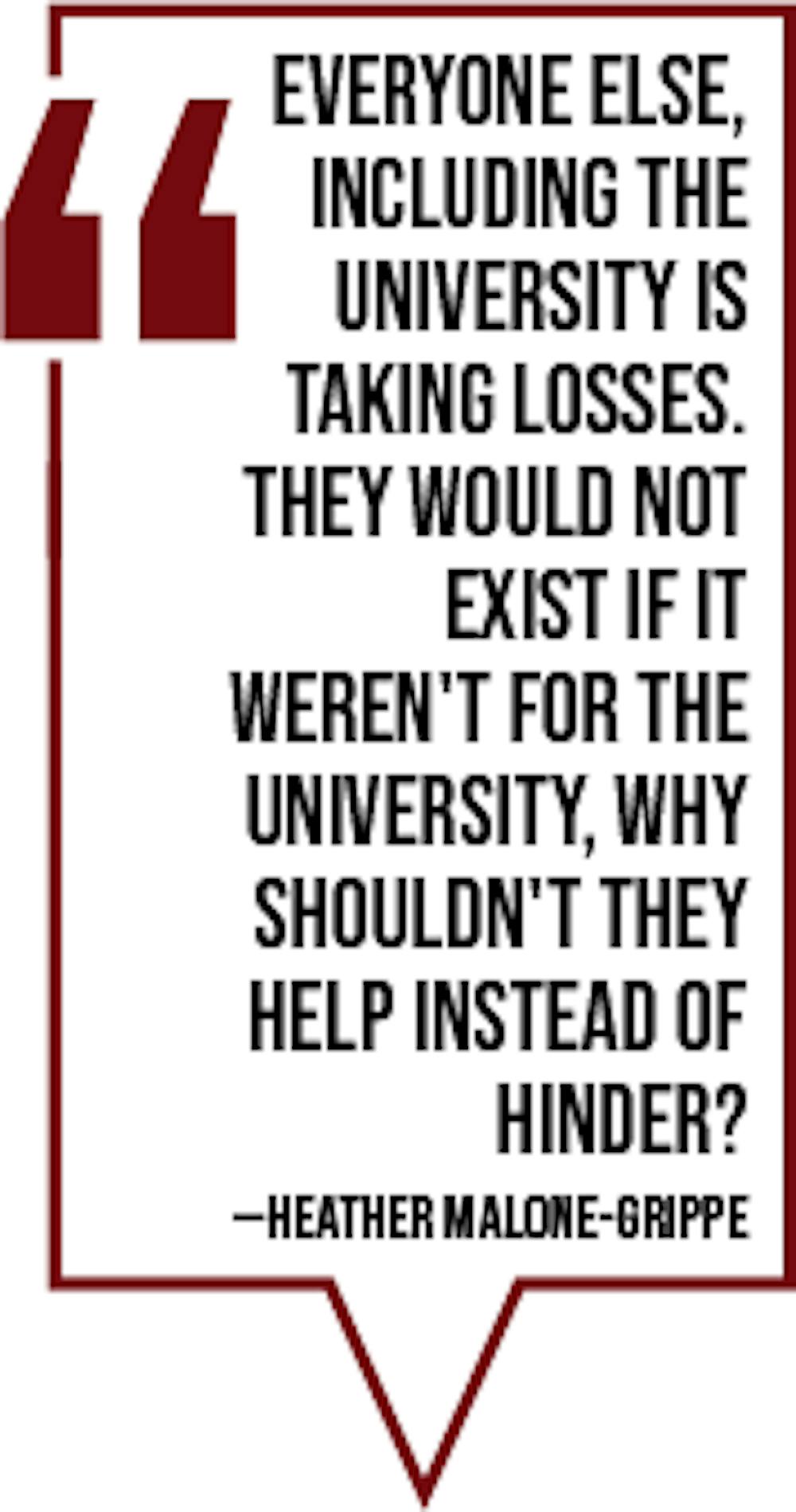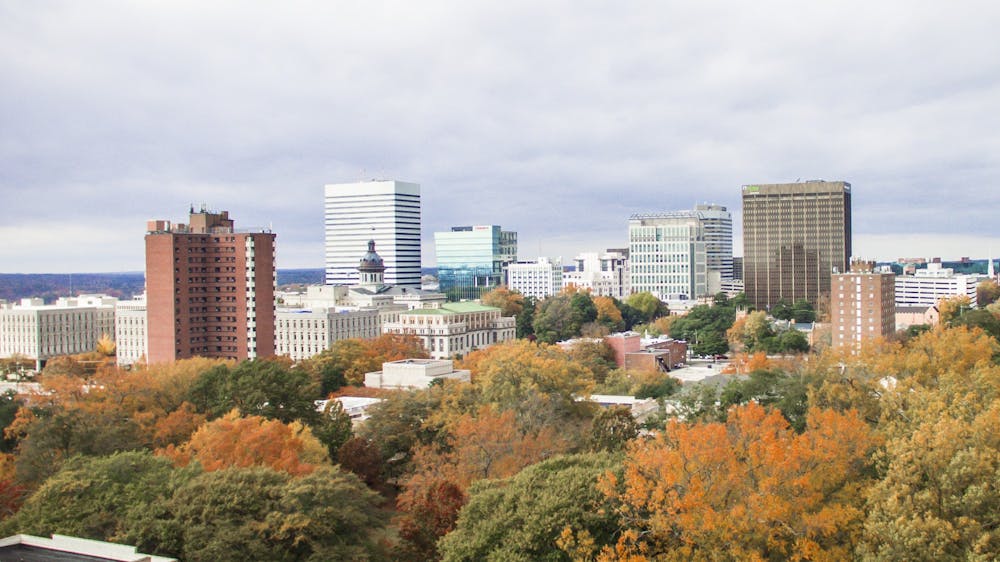With campus closed because of COVID-19, some off-campus apartment complexes are waiving fees, offering payment plans or allowing students to make late or partial payments. Others are sticking to normal payment schedules.
Students who now find themselves out of work are struggling to make monthly payments, but it is difficult for apartments to postpone rent payments, offer discounts or eliminate payments altogether due to their own financial obligations.
Fourth-year public relations student Kenya Glenn is employed at California Dreaming, but she cannot work until they reopen. In an email interview, Glenn said this has made it hard for her to pay rent.
"My apartment hasn’t been helpful in making any adjustments. The only thing they did for me was waive my late fee. California [Dreaming] isn’t doing anything to help," Glenn said. "They filed a claim on my behalf at the unemployment office and that’s pretty much it."
Glenn also works at Thomas Cooper Library, which has been allowing her to work online so she can bring in an income. She said she received help from USC and its COVID-19 relief fund.
Cayce Cove, where Glenn has an apartment, posted a statement on its website to tell residents "[r]ent is still due according to the lease agreement."
Other student apartments in Columbia are abiding by the same policies and are giving little to no flexibility when it comes to making rent payments. Some complexes are offering flexibility such as grace periods.
Carly Wright, a second-year cardiovascular technology student from Richmond, Virginia, said she received a one-week grace period for her rent payments at Greene Crossing. Wright said more could be done to help struggling residents.

“It’s very difficult each month pressing "make payment" from my computer a couple hundred miles away from my apartment, which I’m paying almost $1000 a month to (not) live in,” Wright said in an email interview. “I signed a contract and they are within their rights to ask for payment, however they are aware that they lease primarily to students, and it would be good for their image to make some accommodation.”
Amelia Taylor, a leasing professional at Greene Crossing, said the complex has waived late fees for April and is allowing partial payments to be made online.
William Harrison, a real estate lecturer at the Darla Moore School of Business, said for every rent dollar a landlord receives, they spend about 40 cents on maintenance and payroll, about 30 to 35 cents goes to a lender for debt and about 20 to 25 cents is left for profits.
According to Harrison, real estate as an industry relies on debt, which it has to pay back. This leaves little room for flexibility in implementing rent leniency or forgiveness.
“There are a lot more people involved in this apartment project than just a lender. I mean, who's going to pay the groundskeepers? Who's going to pay the management company? Who's going to pay the leasing agents? Who will pay the cleaners and the janitorial staff that are assigned to the apartment project? So, the only way you get that is from rent,” Harrison said.
Cody Nichelson, a spokesperson for The Retreat, said in an email interview why more accommodations cannot be offered, especially for privately owned complexes.
“As a privately owned and operated housing community, we rely solely on monthly installments from our residents to meet our financial obligations,” Nichelson said.
Nichelson said rent payments contribute "little" profit for the business.
“[T]hey go toward operational expenses that are necessary for us to continue serving our residents, such as overhead costs, local and state taxes, loan and mortgage payments, and payroll for our staff,” Nichelson said.
The Retreat, specifically, does not receive public funds to keep its business running.
Station at Five Points and Empire both have statements posted to their websites because of the current situation involving COVID-19. The statements both say they will waive fees that are usually applied when paying rent with a credit card, but no cancellations or discounts on rent will be available.
Kia Brumfield, the regional manager for Station at Five Points, said in an email interview the complex recognizes this is a difficult period for many.
“Our thoughts are with all those who have been impacted medically and financially by this virus,” Brumfield said. “We are working with residents who believe they will have trouble paying rent and being as flexible as possible during this time.”
Ashley Pilgrim, Empire's leasing and marketing manager, said in an email interview residents are obligated to pay rent, but they provide sublet and relet options that could be beneficial to struggling students.
"If our residents are experiencing any hardships in connection to the coronavirus or COVID-19, we are asking them to email outlining the nature of the hardship as well as a payment request, to our Property Manager and Bookkeeper," Pilgrim said.

A USC student’s parent, Heather Malone-Grippe, said in an email interview she was unsatisfied when it came to River’s Edge and its ability to make adjustments.
“I personally feel that these rental complexes should step up and at the very least offer a 50% discount. Everyone else, including the University is taking losses. They would not exist if it weren't for the University, why shouldn't they help instead of hinder?” Malone-Grippe said.
River’s Edge did not respond to a request for comment via email, phone and social media on April 16.
Anastasia Stocker, the community assistant for YOUnion, said residents are responsible for paying their lease, but the complex has implemented payment plans for students that are out of work.
“There's no lack of desire to try. It's just, you know, when you live in a capitalistic system like we do, where there are so many people who are dependent on that dollar every tenant pays in rent, it isn't an easy matter of forgiving 50 cents on the dollar," Harrison said. "What it means is, other people on the line don't get paid, and that's the scary part of what we're facing here with the economy and the coronavirus.”
Palmetto Compress was contacted via email on April 1 and 21 and has yet to respond. The Mills was contacted via email on April 1, social media on April 21 and phone on April 23 and has yet to respond.
— Tyler Fedor and Christine Bartruff contributed to the reporting of this article.

